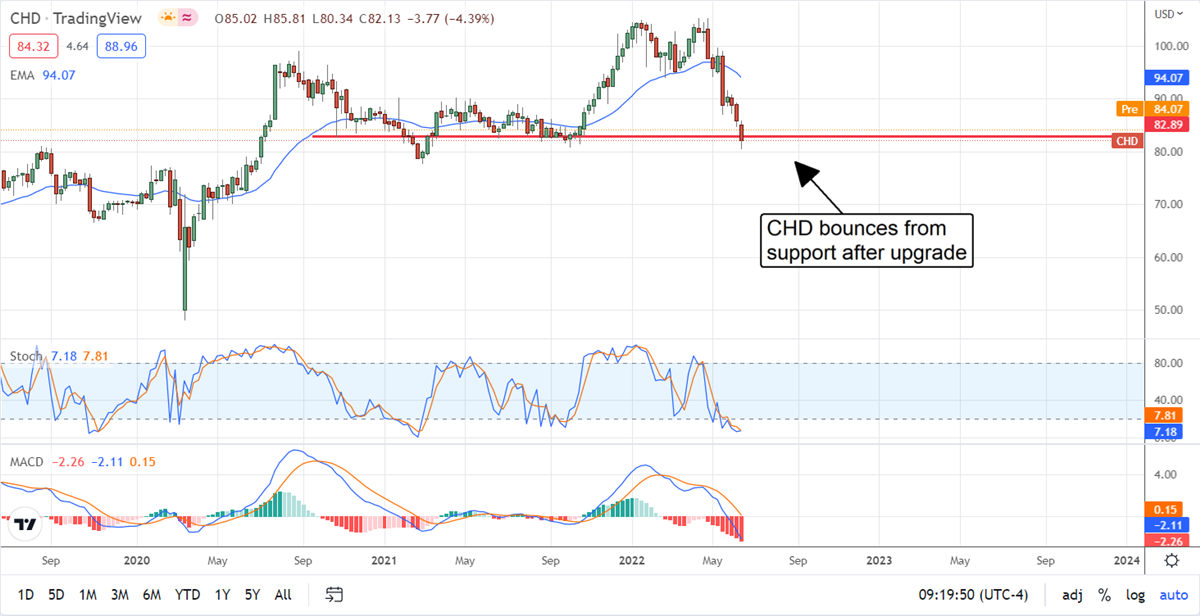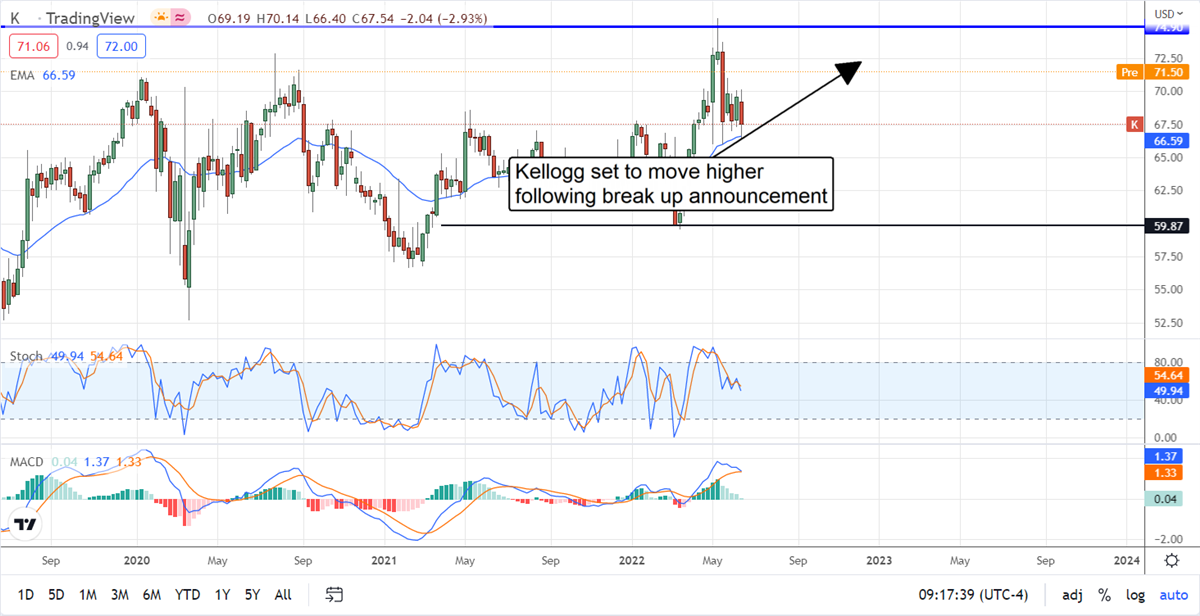A Good Defense Is The Best Offense For These Times
There is so much uncertainty in the air the only thing we can be certain of is the economic conditions will not be the same this fall as they were last fall. If supply chain improvements materialize if inflation gets under control if job growth continues the market will rebound and end the year at or above where it began in 2022. If not, well, if not we think the S&P 500 (NYSEARCA: SPY) could fall as far as the 2,800 level by the end of the 3rd quarter. The takeaway is that there might be a rebound in the market but the risk is definitely to the downside. In this scenario we feel defensive stocks, specifically high-quality dividend payers like Kellogg Company (NYSE: K) and Church & Dwight (NYSE: CHD), are where investors should be getting aggressive today.
Buy The Dip In Church & Dwight
Church & Dwight, maker of toothpaste, laundry detergent, and other household/personal care products is not cheap trading at 26X its earnings but that doesn’t mean it isn’t a value. The stock is down about 20% YTD and offering its deepest discount in years. Analysts at Wells Fargo cited this fact when they upgraded the stock to Overweight from Equal Weight, an upgrade that we think will lead to others. In the eyes of analyst Chris Carey, the stock's strong defensive qualities and undue impact from incorrect data have the risk/reward profile tilted steeply in favor of higher prices. He assigned a $95 price target to the stock compared to the $97 Marketbeat.com consensus, about an 18% upside, and we think the consensus will trend higher in tandem with inflation and shifting consumer trends.
“CHD's defensive qualities are now more attractive given the current macro backdrop and valuation is currently at a historical discount to the entire HPC peer set,” says Mr. Carey. “At the same time, we expect underlying fundamentals to improve with recovery in laundry. Basically, we see a story with both macro and micro tailwinds.”
The CHD dividend isn’t all that exciting at face value because it is yielding only 1.3%. That yield, however, by a sound balance sheet, a very low payout ratio, and a history of aggressive increases. The company has increased the payout for the last 19 years with a 7% CAGR and we see no reason this trend will not continue.

Kellogg Company Unlocks Shareholder Value
We’ve liked the Kellogg Company for some time simply because of its position as a consumer staple, the low 16X price multiple, and the 3.45% dividend yield. Now, with the company set to split into three standalone companies, the urge to buy is more compelling. The split will result in a pure play on cereal, a snacks business, and a pure play on plant-based foods, all of which should command a higher multiple. Simply looking at the snack business, both Pepsico and Hormel, who are heavily exposed to the snacks industry, trade at 24X their earnings while Post Holdings, admittedly not a pure-play on cereal, trades at nearly 40X its earnings with no dividend.
"Kellogg has been on a successful journey of transformation to enhance performance and increase long-term shareowner value. This has included re-shaping our portfolio, and today's announcement is the next step in that transformation," CEO Steve Cahillane said in a statement. "These businesses all have significant standalone potential, and an enhanced focus will enable them to better direct their resources toward their distinct strategic priorities.”

Before you consider Kellanova, you'll want to hear this.
MarketBeat keeps track of Wall Street's top-rated and best performing research analysts and the stocks they recommend to their clients on a daily basis. MarketBeat has identified the five stocks that top analysts are quietly whispering to their clients to buy now before the broader market catches on... and Kellanova wasn't on the list.
While Kellanova currently has a Hold rating among analysts, top-rated analysts believe these five stocks are better buys.
View The Five Stocks Here
MarketBeat's analysts have just released their top five short plays for May 2025. Learn which stocks have the most short interest and how to trade them. Enter your email address to see which companies made the list.
Get This Free Report
Like this article? Share it with a colleague.
Link copied to clipboard.